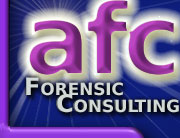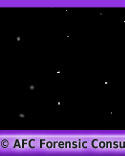


Indoor Water IntrusionWater intrusion into an indoor environment has the potential for causing a wide variety of fungal growth. Fungi thrive in environments with poor ventilation and large quantities of moisture and organic materials. Residential and commercial structures should not be built in a manner to allow water to enter into the structure. Water intrusion into structures is the single most important cause of fungal and mold contamination. Moisture and Microbial GrowthThe presence of excessive moisture results in magnification of microbial growth (Mold, Mildew and Fungal Infections). Environmental Protection Agency (EPA) studies cited microbial contamination as #1 cause of building related illness. Construction DefectsConstruction defects that result in water intrusion produce consequential damages to the structures. These damages far exceed the relatively minor nuisance of soaked studs, drywall and carpet. Wood Destroying Fungi (Decay Fungi)Another significant problem that occurs when moisture enters a structure is the growth of wood destroying fungi. Wood destroying fungi cause dryrot to the wood members of the structure. Dryrot is the process in which parasitic fungi utilize wood as a food source. As the fungi grows, wood is destroyed. Expert Witness TestimonyThe expert witnesses available through AFC Forensic Consulting, are licensed by the State of California Structural Pest Control Board. Our expert witnesses have extensive experience in Bioaerosol Contamination, Mold Identification and Mold Remediation. AFC is also licensed to assess wood destroying fungi damage and prepare all specifications to correct the structural damage. Litigation ExperienceLitigation experience in construction defect and personal injury cases, include investigation, analysis and preparation of remedial specifications. Expert witness testimony involving residential properties includes condominiums, single-family detached homes and multi-family units ranging in size from a single property up to more than 500 condo and multi-family units. Our experience also includes testifying in commercial property cases. s. STRUCTURAL PEST CONTROL ACProvisions: The Act, The Board and Jurisdiction
Inspections, Reports, Bids, Treatments & Structural RepairsA Company must be Licensed as a Structural Pest Control Operator in order to perform any of the activities listed below. (Section 8505)
A General Contractor is not licensed as a Structural Pest Control Operator. Only a Licensed Structural Pest Control Operator may perform the activities listed above. |
